
Six musicians from the UK Fluxus group Apartment House, including Philip Thomas (piano), Bridget Carey (voila), Anton Lukoszevieze, Simon Limbrick (percussion), present several realizations of composer Joseph Kurdirka's pieces, including text scores and fully-notated works.
Out of Stock
Quantity in Basket: None
Log In to use our Wish List
Shipping Weight: 3.00 units
Sample The Album:
Joseph Kudirka-composer
Anton Lukoszevieze-cello
Bridget Carey-viola
Simon Limbrick-percussion
Nancy Ruffer-flutes
Philip Thomas-piano
Click an artist name above to see in-stock items for that artist.
Label: Another Timbre
Catalog ID: at89
Squidco Product Code: 21492
Format: CD
Condition: New
Released: 2015
Country: UK
Packaging: Cardboard Gatefold
Recorded at St. Pauls Hall, Huddersfield University, UK om April 16th, 2015 and June 30th, 2012, by Simon Reynell.
After studying with James Tenney and Michael Pisaro, Joseph Kudirka has gone on to become one of the most interesting and distinctive voices in experimental music. On this CD six musicians from Apartment House present realisations of several of Kudirka's pieces, including text scores, fully-notated works and much in between.
"Apartment House was created 20 years ago in order to perform works that I felt were important in the field of experimental and contemporary music. This enthusiasm led to the group commissioning over 100 new works. Early concerts featured music by composers from Europe, such as Helmut Lachenmann, Mathias Spahlinger and Dieter Schnebel, who were virtually unplayed in the UK. This was complimented with US composers such as John Cage, Peter Garland and Christian Wolff. As the group developed, young emerging composers were embraced and commissioned such as Laurence Crane, Jennifer Walshe, James Saunders, Joanna Bailie, Claudia Molitor, Bryn Harrison and Tim Parkinson.Apartment House has always led an exploratory path, retracing music from the past avant-garde, combined with a keen sense of researching and unearthing the new. It continues to commission radical work and explore the past, questioning and celebrating the wonderful phenomena of experimental and contemporary music of our time."-Anton Lukoszevieze, Artistic Director of Apartment House
Interview between Joseph Kudirka and Another Timbre
I know very little about your background except that you studied at CalArts with James Tenney and Michael Pisaro. So can you tell us about how you came to experimental music and why?
I guess I have to answer your question in a roundabout way. For years, before I really considered myself to be a composer, I was a bass player. As a teenager, I was playing in local youth orchestras and playing electric bass in bands and things like that. I was just into weird music; really nerdy stuff, like jazz fusion and progressive rock. I had some inkling of experimental music first through those channels; I was into the Jamie Muir era King Crimson, and the Area lineup with Demetrio Stratos and Walter Marchetti, etc., as well as Fred Frith, Doctor Nerve/Nick Didkovsky, and the Russian band ZGA, who were on Chris Cutler's label for a few albums - I really liked them a lot. On the classical side of things, I was really into Schnittke, and I had a string quintet that did our own arrangement of an Arvo Part piece, and things like that... so, on the periphery of experimental music, but still pretty staid. I was lucky to have people around me to encourage this. Oh! I'd also started doing a lot of electronic music by that time. I had a sampler, and I had a sort of band that would do improvised gigs with synths, my sampler, a shortwave radio, and whatever else was on hand. I wasn't too aware of free improv, but I knew that what I was doing was more "out there" than the improvising pop bands I liked (The Grateful Dead, Gong, Ozric Tentacles, etc.) were doing. When I was 16, on a holiday in Florida, I bought both Terry Riley's "In C" and Pierre Henri's "Variations for a Door and a Sigh" at a record shop; both of those records were real revelations... the 90's weren't so long ago, but coming across new music then was very different than it is today.
So, I started at Northwestern University with the idea that I'd be an orchestral double bassist or something like that. That's where I eventually met Michael Pisaro (he was teaching there at the time - I was there from '97 to '01, but Michael left in 2000 or something) and Amnon Wolman, who were both really encouraging about me doing crazy things, and introduced me to this entire universe that I'd only had glimpses of before. I remember a distinct turning point, where I was performing in a Mahler symphony. It was - like most Mahler bass parts - really difficult, and we'd spent ages getting it together. Within a split second, I thought "this is great, we're nailing this," and then directly after, "I'm great at playing music that I hate." (I think Mahler is really dreadful). So, that was the end of that. By that time, I was in Michael's experimental music workshop, and I knew that doing George Brecht pieces and things (this was the same time I met Manfred Werder, and then Antoine Beuger - probably '99) was just a million times more rewarding than playing in an orchestra (now, I really love orchestras again, but wouldn't want to be in one as a player). So, I was just in the right place at the right time. Amnon asked me to premiere Michael Maierhoff's double bass piece the next year, and the year after that I did Antoine Beuger's and some of Pisaro's stuff... it's not that I was the best bass player, but I was just someone keen enough to take it on and take it seriously. Doing that Maierhoff bass piece was really great, because I remember the night of that gig on a festival as my sort of induction into a sort of experimental music culture/milieu. I'd done that piece (which Maierhoff was there to help me prepare), Michael Pisaro had done a piece by Kunsu Shim (which resulted in another guitarist shouting at him in the lobby), and Anton Lukoszevieze and Clemens Merkel both played solo programs. Then we went to Amnon's house for dinner and loads of gin and tonic. So, it all comes back around - now Anton's done a disc of my music, and I couldn't be more pleased.
Anyway, I'm leaving loads out, but that's what happened before I went to CalArts. I specifically went there for Michael and Jim, though it was my colleagues who made the place really worthwhile. I hadn't known Jim before, but I'd seen his string quintet all the way back in high school when I was looking for pieces for my quintet, and that got me into his music. More than any other teacher, I can say specific things that Jim taught me, though we didn't really work together that much. I think I got more of a general attitude about music from Michael; I shouldn't discount my other teachers, and since I can mention them, I will: M. William Karlins had a brilliant mind and a love of music that few others have, and Alan Stout (he was also one of Michael's teachers) is just a pure genius. Most of what I know about orchestration I learned from playing in orchestras, but the rest I learned from him. He claims to hold the copyright on the key of D in the UK, so watch out what you release that might be in that key (I've paid him 8 quid in advance). Then, everyone at CalArts was great, but especially Lucky Mosko - he was a treasure, and a true friend. He said that after decades of teaching, I was the first person to say that George Brecht was my favourite composer, and that made him like me.
Well, after that I was in the UK, and we met, so you know the story of the past 8 years or whatever it's been. I do still make pop music, by the way. It's just that the focus has been reversed about which one gets more attention. I just bought a 1956 Gibson electric guitar that I really enjoy playing songs on, though I like the new kitten I got for my mom even more.
The pieces on your CD are mostly - though not all - text scores. My general hesitation about text scores is that it's kind of too easy to produce scores that are open to the point of being loose, and which don't give the musicians enough to create music that feels unique or tied in any discernible way to the written text. But you seem to have thought these things through and have produced a number of scores which evidently work well in the right hands. Was it George Brecht that first drew you to text scores, and what is your thinking on them now?
Hmm... Well, first of all, I don't like the term "text score." I just see text as one of many types of notation that a composer can use on/in a score to lead performers to make a realization of a piece. It's really a very small number of scores that involve no text at all; usually, at least a title is text. I find that text as a notation is generally far less loose than other types of notation. With staff notation, there's this tradition that goes back hundreds of years, but it's a tradition that embraces - at most times - a tremendous looseness. Text can be far more specific than that notation ever can be. For instance, with text, I can just write, "for the length of a breath or bow stroke." There's no way to do that with staff notation, without also adding text to it.
Though text is used as notation in both "tender" and "beauty and industry," they're completely different sorts of scores. One (beauty and industry) is almost completely prescriptive, while the other (tender) is a sort of mystery; it simply sets up a situation by virtue of its existence. The performer has to interact with the score for "tender" to be able to play the piece, whereas anyone can just be told how to play "beauty and industry" without ever having seen the score. So, while the notation seems similar on the surface, it's used to very different ends. I really don't think there's any other kind of notation that provides that same breadth of possibility, which is probably why I use text so much. I just love notation - everything to do with it - in general (it was the focus of my PhD), and as it seems to me that text is the type of notation which offers the greatest number of uses, I just use it more. I mean, it's just practical. Of course there are also all of these "non-musical" (which are actually inherently musical) sorts of political concerns that lead me to it as well... I mean, you can read one of my scores and know what's going on; what the piece is. Can you do that with Sciarrino or Schnittke?
I honestly don't remember the first time I encountered text as notation. It could have been George Brecht, or maybe Wolff, Cage, Tenney, or any other number of composers. I never met Cage or Brecht, but I've been lucky enough to spend lots of time with both Tenney and Wolff. One of the important things that Tenney ingrained in me was that one should know what a piece is before making the score and working on the notation; there should be a sort of (at least mental) check-list to see that the score and notation conform to the piece. Since I perform a lot, it's easy for me to relate to how others will react to my notation. Christian has also been very helpful with this stuff; he's given me great critiques about my notation the few times I've had the pleasure to corner him about it.
I still make mistakes. There are lots of my scores which I look back on and think "Oh, I could have worded this better, or I could have changed the order these things appear in," etc., but I also think these things are a product of their time, so I don't do much revision once a piece has been played.
Anyway, it's nice that you say "in the right hands," because that's what it all comes down to. With the pieces on this CD (it's a little bit - but not a lot - different with orchestra music and things like that), I'm just one very small part of the music that someone hears. I'm an ok performer, but not a great performer. On here, you've got great performers. The composer shouldn't be the authority about what a piece is, but just an authority; the performer(s) may have insight that the composer hasn't. I mean, this can't all just be for my ego, can it? Certainly, everyone else is getting something from it; I just can't see what that is... and thank God, because I've got my plate full just doing my little part. Really, this is why I think we make music; it's a type of communication/culture/community that couldn't exist in any other way.
So what about the conventionally notated pieces - '21st century music' and 'dulcimer'? Does it feel less exciting to compose less open works like these, or do you enjoy that as well? Can you explain how they both came about?
Oh, no, it's not less exciting at all. In most cases, I'm thinking about what the piece is in essence before I even consider how I'm going to notate it. There are exceptions, like "tender" and "wyoming snow" (which is a sort of adapted/extended staff notation), where the notation and a specific performer's response to it is inherent to the identity of the piece. I suppose one could say that about most staff notation too though... staff notation isn't less open, unless the composer makes it less open. You only have to listen to the different versions of Bach's "Goldberg Variations" that Glenn Gould made to see how incredibly open that notation can be in the hands of the same performer. That 1981 recording he made is really incredible; just think, the instrument he was playing on wasn't invented (pianos existed, but they weren't like the pianos we have now) when Bach wrote that, and recording technology was hundreds of years away. Yet, here is that piece, played by a performer who only has contact with that score, and he's making a version which will only ever exist as a recording. That's real openness. I can only hope that I ever make a score as open as that.
As for the two pieces of mine on this disc that you mentioned, I can tell you exactly how they came about. The pitches in "Dulcimer" are derived from a specific dulcimer I inherited from an aunt, Elma Wilson (she was a folk musician - somewhere between hobbyist and semi-pro, I guess you'd say these days - who died quite suddenly at a relatively young age, and I wound up with loads of her instruments). Well... maybe "exactly" was an exaggeration, because it's been awhile, but it was somehow a transcription of different chords that could be made on that dulcimer by fretting notes and plucking on either side of a particular fretted note in some systematic way. I'm pretty sure the three different timbres called for in the piece relate to the three courses of string on a mountain dulcimer. I could have made it into a piece to be played on any dulcimer, but as an homage to my aunt, I made a piece specifically derived from that dulcimer, which could then be played by anyone on any instrument(s).
As for "21st Century Music," that's a dedication to Laurence Crane, whose music I like a lot (I like him a lot personally too). He's got that great piano piece "20th Century Music," so I just thought a piece dedicated to him, written a few years later, could be called "21st Century Music." I've done several pieces dedicated to other composers, where, when composing, I think to myself, "what is something I wouldn't write if it weren't for exposure to this person's work?" I've done works like that for James Tenney, Michael Pisaro, Lucky Mosko, Jürg Frey, Mark So, Christian Wolff... others, I'm sure - you don't need a complete list. Anyway, I was thinking of Laurence's music. His music so often relies on specific pitches and rhythms that using pitches and rhythms was a pretty natural outcome of that thought process. I wasn't trying to make music like his though - I don't think anyone could. I was just trying to highlight the small part of my own music-making that is indebted to my encounters with his work.
The pieces on your CD are dated from between 2005 and 2011, which must be roughly the time when you were doing your PhD in Huddersfield. Can you describe some of your most recent projects since you left the UK? Where are you based now, and do you make any sort of living from music?
I think about half of these pieces are from my time in Huddersfield, which was 2007 - 2012. A funny thing about doing the PhD for me is that I was busy doing all of this academic stuff and actually was writing less music than before. That said, since leaving, I'm writing less still, but what I am doing is probably more focused. In 2013 I started an ongoing project which consists of me making hand-made sheets of paper variously interpreted by myself and others (that is, it can be realized as a concert piece, set up as an installation, or just exist to be interacted with privately by individuals). I make these scores from the detritus of daily life when I'm on artist residencies; I've made pages in Winterthur and Nairs, Switzerland, and Brussels. Last year, I also started making music boxes, by repurposing parts from old Swiss music boxes to make one-of-a-kind objects which play unique tunes (like the paper, these can be set up in installations or just exist individually). Last year, I put on my first opera, which was at Université Paris 8 as part of a larger project focusing on the centenary of WWI; that was a great, new experience. So, I'm doing these things on residencies and stuff, but I'm also making a few other pieces when asked, or when the fancy strikes me. I just had a string trio done that I was asked to write for a project in Switzerland to go on a program with pieces by Beat Keller and Tom Johnson - that was nice... I did a piece for Amnon Wolman's birthday... not a huge number of pieces, but hugely variable, and generally larger in scope than what's on this CD.
I've basically been living out of a suitcase for the last 3+ years. I spend a few months a year in my home state of Michigan, working blue collar sorts of jobs (cook, bartender, warehouse worker, etc.) just because it's next-to-impossible to make a living as a composer and performer of experimental music. I do make some portion of my living from music, but it's usually not as much as from other jobs; the Swiss pay well, but it's also very expensive there. I enjoy doing residencies and things, but most are on shoestring budgets and can't afford to pay much, and the people who want to perform my stuff don't have loads of money for commissions and things. Somehow it's working; my work's getting played a lot (at least in Europe - I haven't performed in the US in 9 years, I think) which is more important to me than getting money for something that's only going to get played once by some "name" ensemble. Right now, I'm in Michigan, having worked for the summer, and getting ready to go back to Europe for the winter to do music things, though not for anything specific... Are there still flaneurs? I'm like a flaneur with a passport.

The Squid's Ear!
Artist Biographies
• Show Bio for Joseph Kudirka "Joseph Kudirka is a composer and performer of experimental music. His works have been commissioned and/or premiered by musicians and ensembles including Rhodri Davies, Daniel Plöger, Anton Lukoszevieze, Mark So, Phillip Thomas, Zinc & Copper Works, wandelweiser komponisten ensemble, edges ensemble, and Ensemble Neue Horizonte Bern. He was born in Grand Rapids, Michigan, USA, in 1978. He has, at other times, also been a legal resident of the UK and Switzerland. As a contrabassist, he has premiered works by numerous composers, including Michael Maierhoff, Antoine Beuger, and Eva-Maria Houben." ^ Hide Bio for Joseph Kudirka • Show Bio for Anton Lukoszevieze "Cellist Anton Lukoszevieze (born 1965 in the UK) is one of the most diverse performers of his generation and is notable for his performances of avant-garde, experimental and improvised music. Anton has given many performances at numerous international festivals throughout Europe and the USA (Maerzmusik, Donaueschingen, Wien Modern, GAS, Transart, Ultima, etc.etc.). He has also made frequent programmes and broadcasts for BBC Radio 3, Danish Radio, SR2, Sweden, Deutschland Rundfunk, WDR, Germany and ORT, Austria. Deutschlandfunk, Berlin produced a radio portrait of him in September, 2003. Anton has also performed concerti with the City of Birmingham Symphony Orchestra at the 2001 Aldeburgh festival and the Netherlands Radio Symphony Orchestra. He has collaborated with many composers and performers including David Behrman, Alvin Lucier, Amnon Wolman, Pierre Strauch, Rytis Mazulis, Karlheinz Essl, Helmut Oehring, Christopher Fox, Philip Corner, Alvin Curran, Phill Niblock and Laurence Crane, He is unique in the UK through his use of the curved bow (BACH-Bogen), which he is using to develop new repertoire for the cello. From 2005-7 he was New Music Fellow at Kings College, Cambridge and Kettles Yard Gallery. Anton is the subject of four films (FoxFire Eins) by the renowned artist-filmmaker Jayne Parker. A new film Trilogy with compositions by Sylvano Bussotti, George Aperghis and Laurence Crane premieres at The London Film Festival, October 2008. In November will premiere a new hour long work by Christopher Fox for cello and the vocal ensemble Exaudi commissioned by the Huddersfield Contemporary Music Festival and will also present new solo works for cello and live electronics. Anton is also active as an artist, his work has been shown in Holland (Lux Nijmegen), CAC, Vilnius, Duisburg (EarPort), Austria, (Sammlung Essl), Wien Modern, The Slade School of Art, Kettles Yard Gallery, Cambridge Film Festival and Rational Rec. London. His work has been published in Musiktexte, Cologne, design Magazine and the book SoundVisions (Pfau-Verlag, Saarbrucken, 2005). Anton Lukoszevieze is founder and director of the ensemble Apartment House, a member of the radical noise group Zeitkratzer and recently made his contemporary dance debut with the Vincent Dance Company in Broken Chords, Dusseldorf." ^ Hide Bio for Anton Lukoszevieze • Show Bio for Bridget Carey "Bridget Carey studied jointly at the Royal Academy of Music and London University and has pursued a varied freelance career based in London, and has developed a particular reputation in the field of new music. For 15 years she premiered new chamber opera for the Almeida, whilst working in dance scores with Siobhan Davies and Rambert companies, classical contemporary with Opus 20 and Music Projects/London and new complexity with Ensemble Expose. From 1995-2005 she was viola player with the Kreutzer string quartet. More recently, her chamber music interests include Okeanos and the RPS award-winning experimental music group Apartment House, with whom she continues to add to her chamber music discography. She has been a member of Britten Sinfonia for the last 20 years, and is a regular guest with London Sinfonietta and BCMG, among others." ^ Hide Bio for Bridget Carey • Show Bio for Simon Limbrick "Simon Limbrick's involvement in music embraces performance, composing and education.
He was a member of the cult systems orchestra The Lost Jockey and Man Jumping, recording for EG Editions and creating scores for leading dance companies, Second Stride, London Contemporary Dance, Rosemary Lee and Sue MacLennan. He has been in demand as a percussionist performing all over the world with the Nash Ensemble, Birmingham Contemporary Music Group, Endymion Ensemble, Composers' Ensemble and Fibonacci Sequence as well as recording with artists such as Alabama3, Gavin Bryars Pete Lockett and for Blue Note Records. He has been guest principal with the LSO and worked under conductors, Leonard Bernstein, Oliver Knussen, Simon Rattle and Tom Ades. He has featured on film and television including documentaries about Steve Reich and Kenneth MacMillan's award winning Judas Tree.Compositions created for him include works by Javier Alvarez, Brian Elias (Kenneth MacMillan's last ballet The Judas Tree), Vic Hoyland and Andrew Poppy. He has performed the world-premieres of solo pieces by James Dillon, Frederic Rzewski , Claude Vivier, Philip Cashian, Thea Musgrave, Harry de Wit, Howard Skempton, Michael Wolters and Ed Kelly. His solo performances have been broadcast by the BBC, RAI, Radio France, Dutch TV and radio. Recently, he performed his own concerto Bulls Yard and Stockhausen's Zyklus at the Sage, Gateshead,(see review) solo steel-pan in Brian Elias' Judas Tree at Royal Opera House, London, in 2010 and directed his mixed-media project, dot-machine, a web-based musical construction accessible on www.marimbo.com. He created a 24 hour long piece surfaces with the composer James Saunders, with financial assistance from the Arts Council of Great Britain and premiered at the Huddersfield Contemporary Music Festival in 2011. In education, Simon has led workshops since 1982, and been a returning resident artist in festivals and organisations, including Blackheath Concert Halls, Aldeburgh Music, Sound It Out , Spitalfields Festival. Workshop projects have been led by him throughout Europe. As a fully-qualified teacher, he has led Music and Performing Arts in Secondary Schools for five years. He has led school and community projects for Aldeburgh Music. As Artistic Director, he helped establish In Harmony Norwich, creating mixed-ability orchestral pieces for professional and young student players. Until the School of Music closed in June 2014, he was Director of 'Musician in the Community' and 'Creative Leadership' courses at University of East Anglia.
As a composer, Simon has gained an MA in Electroacoustic Composition from City University and collaborated as a composer on a number of large scale works, including a project at Fort Dunlop, Birmingham, with Rosemary Lee and site-specific work with Dutch composer/sound sculptor Harry de Wit in Holland and Brussels.He has produced film scores for TV and film festivals and composed music for theatre productions at the National Theatre and Royal Shakespeare Companies. Groups he has created pieces for include Mary Wiegold's Songbook, Roger Heaton Group, Ensemble Bash, Network of Sparks, Endymion Ensemble, Richard Durrant, Ritmatic, Hooloo. The Brighton Youth Orchestra performed machina lumina , for string ensemble and vibraphone throughout 2009. His composition Machine for Living for Landesmusikrat/Splash was recorded at Deutschlandradio. He has produced recordings for wergo and others.Currently composing a large piece for jazz brass and marimba. He has created the CDs, Steam, Hooloo, Clean, Ritmatik, Dot-Machine, Hammer, Rise and Fall, , between and Relay, which are frequently broadcast and available on well-known download sites. NEW RELEASE of a double CD RELAY, of contemporary steel-pan music in Sept 2014. Sound Composer for the film 3 Church Walk by the director Emily Richardson premiered on 18th Oct 2014 at The London Festival, BFI, London." ^ Hide Bio for Simon Limbrick • Show Bio for Nancy Ruffer "Nancy Ruffer was born in Detroit and received a Master of Music degree from The University of Michigan. She received a Fullbright-Kays Scolarship in 1976 to study at the Royal Academy of Music, London, and she has remained in London working as a freelance flautist specialising in contemporary music. Composers who have written for her include Michael Finnissy, Chris Dench, John White, Christopher Fox, Ian Wilson and Graham Fitkin. In 1984 she was awarded the Kranichsteiner Prize for Performance at Darmstadt and she was elected an Associate of the R.A.M. Nancy Ruffer is principal flute of the ensembles MusicProjects/London, Matrix, Almeida Ensemble and Topologies as well as performing with ensembles of the Royal National Theatre. In addition she records regularly for the BBC and performs in festivals and concert halls throughout Britain and abroad. In 1999 she toured Canada performing works by, among others, Ferneyhough and Dillon, and in 2002 she toured Georgia and Tennessee with pianist Helen Crayford, performing works by British and American composers. Ms Ruffer was awarded the Kranichsteiner Prize for Performance at Darmstadt in 1984 and was appointed an Associate of the Royal Academy of Music." ^ Hide Bio for Nancy Ruffer
3/31/2025
Have a better biography or biography source? Please Contact Us so that we can update this biography.
3/31/2025
Have a better biography or biography source? Please Contact Us so that we can update this biography.
3/31/2025
Have a better biography or biography source? Please Contact Us so that we can update this biography.
3/31/2025
Have a better biography or biography source? Please Contact Us so that we can update this biography.
3/31/2025
Have a better biography or biography source? Please Contact Us so that we can update this biography.
Track Listing:
1. Tender (2008) 0:53
2. Beauty And Industry (2007) 6:07
3. Two Sections (2011) 0:36
4. 21st Century Music (2008) 3:54
5. Wyoming Snow (2007/2008) 6:09
6. An Orchestral Fantasy (2006) 1:56
7. Beauty And Industry Second Version 6:10
8. Grey (2006) 6:26
9. Two Sections Second Version 0:35
10. Dulcimer (2006) 3:12
11. Two Sections Third Version 0:40
12. Beauty And Industry Third Version 6:03
13. Tender Second Version 0:47
14. Wyoming Snow Second Version 8:46
Compositional Forms
New in Compositional Music
Search for other titles on the label:
Another Timbre.

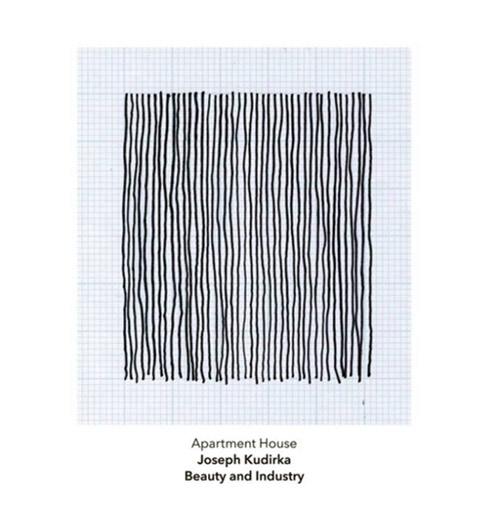
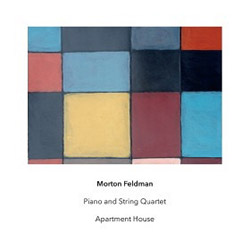

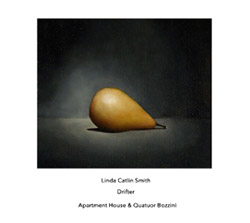

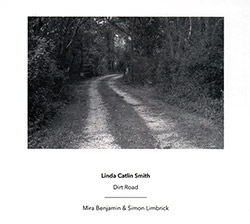



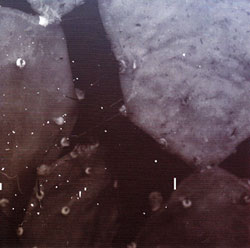






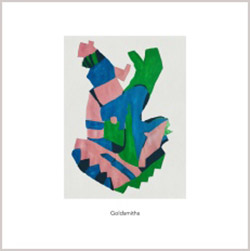
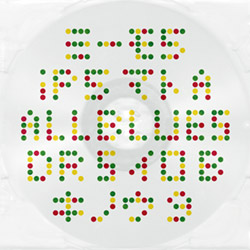

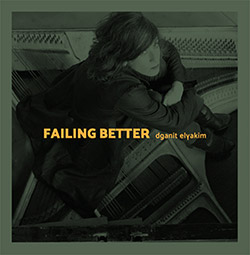
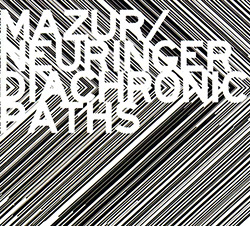

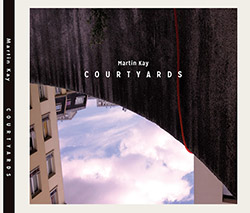
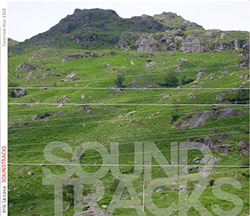
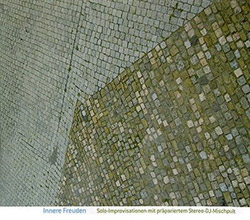

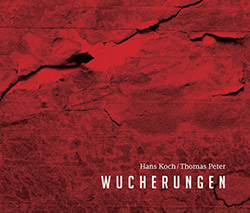

![Rodrigues, Ernesto / Nuno Torres / Guilherme Rodrigues: Whispers In The Moonlight - In Seven Movements [2CDs]](https://www.teuthida.com/productImages/misc4/35765.jpg)



![Cocks, Laura: FATHM [VINYL]](https://www.teuthida.com/productImages/misc4/36055.jpg)










![Ackerley / Prymek / Turner: All Hope With Sleeping Minds [CASSETTE]](https://www.teuthida.com/productImages/misc4/35950.jpg)
![Myers, David Lee : Tin Drop Tear [BOOK w/ DOWNLOAD]](https://www.teuthida.com/productImages/misc4/36030.jpg)



![Schindler, Udo / Sandy Ewen / Damon Smith: Munich Sound Studies Vols. 4, 5 & 6 [3 CDs]](https://www.teuthida.com/productImages/misc4/35966.jpg)






![Turbulence Orchestra & Sub-Units: Smear Out the Difficulties (Double Live) [2 CDs]](https://www.teuthida.com/productImages/misc4/36048.jpg)
![Perelman, Ivo / Tyshawn Sorey: Paralell Aesthetics [2 CDs]](https://www.teuthida.com/productImages/misc4/35871.jpg)


![Sjostrom, Harri: SoundScapes #4 Festival Berlin 2023 [3 CDs]](https://www.teuthida.com/productImages/misc4/35874.jpg)



![Glenn, Jordan: Flustered [CASSETTE]](https://www.teuthida.com/productImages/misc4/35948.jpg)


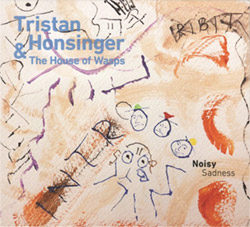
![Lindorff-Ellery, Evan: Church Recordings from Monhegan [CASSETTE]](https://www.teuthida.com/productImages/misc4/35949.jpg)
![Schindler, Udo / Werner Dafeldecker / Gunnar Geisse: Travelling Sound Images - Cognitive Transfers [Trio]](https://www.teuthida.com/productImages/misc4/35767.jpg)

![Egberth, Dennis: The Dennis Egberth Dynasty [VINYL]](https://www.teuthida.com/productImages/misc4/35549.jpg)


![Schindler, Udo / Rieko Okuda / Eric Zwang Eriksson: Disturbed Terrains [2 CDs]](https://www.teuthida.com/productImages/misc4/35330.jpg)






![Olencki, Weston : Pearls Ground Down To Powder [VINYL]](https://www.teuthida.com/productImages/misc4/35956.jpg)
![Myers, David Lee: Oculus [2CDs]](https://www.teuthida.com/productImages/misc4/35857.jpg)


![dustsceawung: dustsceawung [CASSETTE w/ Download]](https://www.teuthida.com/productImages/misc4/35753.jpg)




![Halls of the Machine: Atmospheres For Lovers And Sleepers [CASSETTE w/ DOWNLOAD]](https://www.teuthida.com/productImages/misc4/35806.jpg)



![AHC (Alexander Cooper): Lase [2 CDs]](https://www.teuthida.com/productImages/misc4/35754.jpg)



![Fagaschinski, Kai / Yan Jun : Graveyard Processions [VINYL w/ DOWNLOAD]](https://www.teuthida.com/productImages/misc4/35474.jpg)
![Brant, Cody / Carl Kruger: Smoke Detail [CASSETTE w/ DOWNLOAD]](https://www.teuthida.com/productImages/misc4/35551.jpg)








![Zorn, John / JACK Quartet: The Complete String Quartets [2 CDs]](https://www.teuthida.com/productImages/misc4/35609.jpg)

![Lonsdale, Eden: Dawnings [2 CDs]](https://www.teuthida.com/productImages/misc4/35480.jpg)







![Sanna, Claudio: Compositori Sardi Contemporanei II [2 CDs]](https://www.teuthida.com/productImages/misc4/35317.jpg)







![Zurria, Manuel: Fame di Vento [3 CDs]](https://www.teuthida.com/productImages/misc4/35167.jpg)

![Granberg, Magnus / Nattens Inbrott / Skogen: Holde Traume, Kehret Wieder! [2 CDs]](https://www.teuthida.com/productImages/misc4/35038.jpg)

![Electric Bird Noise / Derek Roddy: 8-10-22 [CD EP]](https://www.teuthida.com/productImages/misc4/35970.jpg)








![Elephant9 : Mythical River [VINYL]](https://www.teuthida.com/productImages/misc4/34624.jpg)



![Elephant9 with Terje Rypdal: Catching Fire [VINYL 2 LPs]](https://www.teuthida.com/productImages/misc4/35355.jpg)
![Deerlady (Obomsawin, Mali / Magdalena Abrego): Greatest Hits [VINYL]](https://www.teuthida.com/productImages/misc4/34876.jpg)







![Surplus 1980: Illusion of Consistency [CD]](https://www.teuthida.com/productImages/misc4/35069.jpg)
![Staiano, Moe: Away Towards the Light [VINYL + DOWNLOAD]](https://www.teuthida.com/productImages/misc4/35037.jpg)



![Caveira (Gomes / Sousa / Abras / Ferrandini): Ficar Vivo [VINYL]](https://www.teuthida.com/productImages/misc4/34643.jpg)
![Coley, Byron: Dating Tips for Touring Bands [VINYL]](https://www.teuthida.com/productImages/misc4/17906.jpg)

![Lost Kisses: My Life is Sad & Funny [DVD]](https://www.teuthida.com/productImages/misc4/lostKissesDVD.jpg)